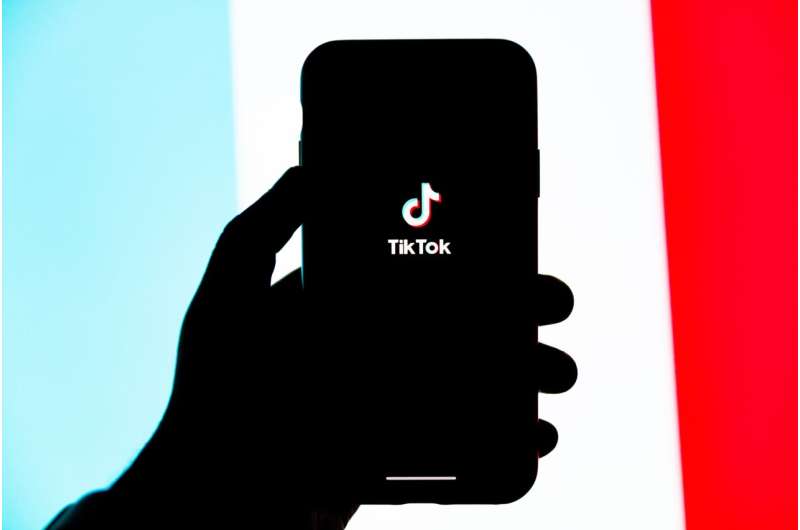This article has been reviewed according to Science X's editorial process and policies. Editors have highlighted the following attributes while ensuring the content's credibility:
fact-checked
reputable news agency
proofread
Fight health misinformation by influencing the influencers

Public health institutions are facing the challenge of a lifetime as social media breeds misinformation and disinformation about everything from COVID vaccines to climate change. Now, a creative program at Harvard T.H. Chan School of Public Health is trying to flip the script by influencing the influencers on TikTok, Instagram and YouTube. Given the monumental task, we need more experiments like this.
In a pilot program last year, Harvard researchers provided dozens of mental health influencers with simple toolkits (and in some cases, training from public health experts) providing accurate, evidence-backed information on specific mental health topics. The goal: to flood the zone with good information in the hope of drowning out the bad.
So far, it looks like the pilot is worth expanding. In a paper published this month, the team found that providing the toolkit increased the likelihood that the influencers would create content that includes the core themes the Harvard scientists were promoting. The effect was small—just a 3% increase in references to those topics—but even small shifts can matter given the volume of content created and the millions of views these posts might receive.
Government agencies like the Centers for Disease Control and Prevention and the Food and Drug Administration have also experimented with ways to better reach the public, but have yet to come up with a winning formula. In a recent editorial warning that misinformation might be pushing the US to a tipping point on vaccination, FDA leaders suggested the remedy is to dilute that bad information "with large amounts of truthful, accessible scientific evidence."
But who should take on this huge task? The FDA suggested anyone "directly interacting with individuals in a health care setting"—in other words, doctors, nurses and other providers.
Those conversations are critical, but not nearly enough. Combating the insidious spread of misinformation will involve meeting people where they are—and increasingly, that's on social platforms.
"To be compelling in today's world, you need to let authentic community voices tell your story," says Amanda Yarnell, senior director for the Chan School's Center for Health Communication. (As full disclosure, I worked with Yarnell at a previous job.)
Those authentic voices can, anecdotally at least, wield real power. As my colleague Jessica Karl recently wrote, influencers swiftly quashed a Gen Z-driven TikTok trend to evaluate whether or not girls had "legging legs," or unrealistically skinny legs. But too often those kinds of harmful trends go unchecked, proliferating with dire consequences, especially for teens vulnerable to content related to suicide and body image.
The Harvard team is trying strategically to cultivate a healthier digital community. In addition to the creation of more high-quality content, they've seen other signs of success in the program's short existence. Influencer Kate Speer connected with Bryn Austin, director of STRIPED (Strategic Training Initiative for the Prevention of Eating Disorders) at Harvard.
Speer then helped convince her followers to pressure New York Governor Kathy Hochul to sign a bill banning the sale of weight loss pills and muscle builders to minors. Austin says that Speer's involvement led to five times as many letters to state representatives as typically seen for this type of public health campaign.
Ultimately, the goal isn't just to influence the influencers, but to improve the health of the public. That might sound audacious, but they think it's possible—and are trying to measure it. The team is currently building a large language model to evaluate the hundreds of thousands of comments left on videos made before and after creators are exposed to these toolkits.
The hope is that the conversations about mental health are improved by evidence-based content. They also plan to run a study where users see content created with or without the help of the toolkit and survey whether it changes beliefs and behaviors.
This effort is focused on mental health, an area with admittedly enormous need, but there's no question it could be extended to other areas of public health. I'd love to see this approach tried in some of the areas of public health where social media has allowed dangerous narratives to proliferate, such as vaccine hesitancy.
The effort isn't without underlying challenges. Creating content is influencers' bread and butter. They might personally care about seeding the ecosystem with better health information, but they need to make money, too. Public health agencies and even private philanthropies with a vested interest in fostering healthier social ecosystems could consider funding mechanisms for training and supporting accurate information—and of course, do so in a way that maintains the authenticity of creators' voices.
Public health institutions have taken a credibility hit over the last few years. They'd be wise to think creatively about this and other experiments that could help them regain lost ground.
2024 Bloomberg L.P. Distributed by Tribune Content Agency, LLC.




















